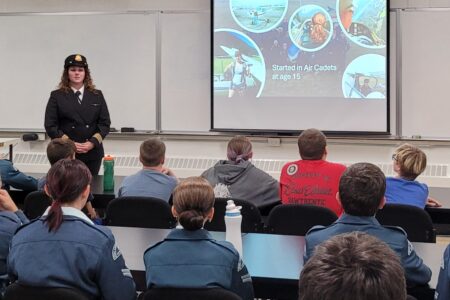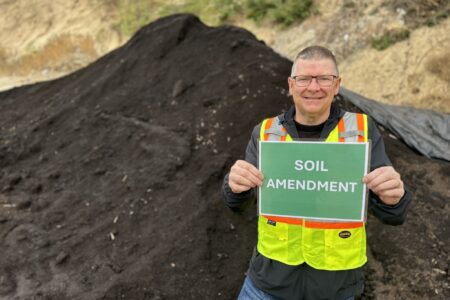Interview with Zak Keating – Rossland Bylaw Enforcement Officer
Zak Keating wants to keep the bears in our city wild and alive. He has many duties as a Bylaw Enforcement Officer; our focus was on the part of his job that deals with bears.
Our interview took place last week, and he provided written responses below. However, we would like to tell you a bit about him first. During bear season, his workday begins riding his bike around the day’s garbage pickup zone to watch out for bear attractants. Rossland has one of the most comprehensive bylaws regarding wildlife attractants in B.C. Tickets for putting your garbage out in a bag rather than a lidded bin can be given. Zak, however, prefers to educate residents first. He’s very open to answering questions and providing insight into the importance of keeping bears and other wildlife in their natural habitats.
Zak urges residents to call the city (250-362-7396) whenever they have a concern about a bear or notice a problem with open garbage or pet food left outside. As fruit trees ripen, they are also a concern. All calls are confidential. Rossland also gets a lot of visitors; he would like the opportunity to provide some guidance.
If you have a bear encounter concern after city hall’s hours (Mon-Fri 9-4), please call our region’s Conservation Office at: 877-952-7277.
Zak Keating’s Written Responses:
- How long have you worked for Rossland City as a By-Law Officer?
I’ve worked as the Bylaw Enforcement Officer with the City of Rossland for just over three years now. Prior to this role, I completed a double major in Political Science and Criminology and served with the Finnish Defence Forces. That experience shaped my approach to community safety and compliance—structured, preventative, and education-focused.
- What does your job involve? In particular, when you deal with matters involving bears.
My job involves gaining voluntary compliance with city regulations and educating the public about their responsibilities under local bylaws. A large part of my role, especially during bear season, is ensuring residents store refuse securely, manage fruit trees, and avoid leaving out attractants like pet food or bird seed. The goal is to prevent conflict before it occurs by: intervening early, educating residents, and reducing opportunities for wildlife to become food-conditioned.
- What are our city’s laws about failing to secure bear attractants?
The Wildlife Attractant Control Bylaw No. 2816 requires all wildlife attractants to be stored in a manner that is inaccessible to wildlife. That includes placing garbage in wildlife-resistant containers, managing compost properly, cleaning barbecues, and ensuring fruit trees are harvested. Non-compliance can result in penalties ranging from $50 to $300, depending on the infraction. The regulations are straightforward and rooted in public safety and wildlife protection.
- When should a Rossland resident call a Conservation Officer or you about a bear?
If a bear poses an immediate public safety threat—such as aggressive behaviour or refusing to leave a property—residents should call the Conservation Officer Service. However, the first step should always be contacting the City when attractants are unsecured or there are repeated issues with fruit trees or waste. Reports to the City are confidential, allowing me to investigate and educate the property owner early. That kind of early intervention is critical. It helps protect wildlife and moves our community closer to Bear Smart certification.
- What do you dislike about your job?
The most challenging part is seeing the same issues arise repeatedly after education and warnings have already been given. It’s disheartening when preventable attractant issues result in a bear being destroyed. The goal is always to prevent harm—to both people and animals.
- Do you have a significant story about black bears you’d like to share?
Yes—last season we had a juvenile black bear generating a lot of concern from residents. I was able to step in early, speak with several homeowners, and help them secure garbage and pick their fruit. As a result, the bear moved on before becoming habituated. It was a simple intervention that very likely saved the animal’s life and prevented a much more difficult situation down the road.
- Do you have any issues you would like to clarify in this article?
Yes—I want residents to understand that these are simple, reasonable responsibilities. The bylaw isn’t meant to punish people. It exists to protect our community and keep wildlife wild. I’m here as a resource, and I’m always willing to help find practical solutions.
- Are those your chickens in the photo?
No, they’re not mine—but they are within city limits. Just a reminder that any animals kept on a property must be managed in a way that does not attract wildlife, as per our city regulations.
Volunteers of the Rossland Bear Smart Task Force wrote this article. Find our web page on the Rossland Sustainability site: https://rosslandsustainability.com and tap the Bear Task link.
Nancy Bulman, Sue Wrigley, and Kathy Moore
























